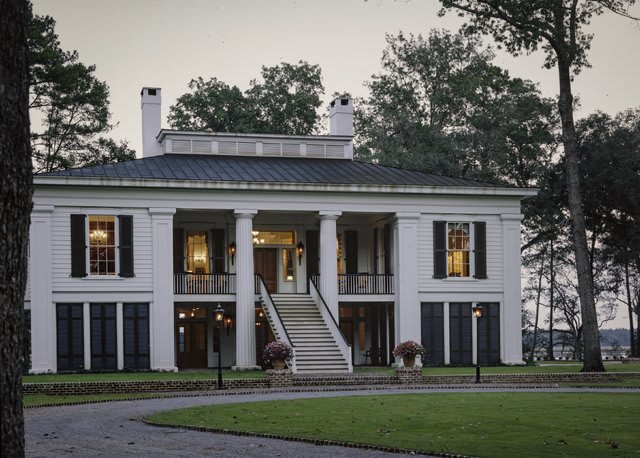
As interest grows in the Caucasus, many buyers and investors are exploring opportunities in the Georgian property market. For an accessible introduction to local listings and services, visit real estate in georgia residence-estate.ge/en to see examples of offerings and local expertise.
Georgia has become a noteworthy destination for real estate investment over the past decade. Political stability, simplified procedures for foreign buyers, favorable tax policies, and rising tourism have combined to create a dynamic environment for both residential and commercial property. The market rewards those who combine careful research with an understanding of regional differences and legal frameworks.
Market overview: After periods of rapid growth, major Georgian cities have experienced steady demand rather than volatile spikes. Tbilisi, the capital, remains the primary hub for residential and commercial real estate, driven by growing expatriate communities, international businesses, and a steady flow of tourists. Batumi, on the Black Sea coast, attracts investors interested in resort properties and vacation rentals; its skyline of modern high-rises and seaside amenities continues to draw speculative and long-term buyers. Secondary cities such as Kutaisi and Rustavi are developing more slowly but present opportunities for lower entry prices and potential future appreciation as infrastructure projects progress.
Types of properties: Buyers can choose from a wide spectrum of asset types. In urban centers, modern condominiums and renovated historic apartments are favored by professionals and expatriates. Family homes and gated communities appeal in suburban neighborhoods and on the city outskirts. In coastal areas, holiday-oriented apartments and villas are common. For investors, mixed-use developments and commercial premises—offices, retail units, and hospitality properties—provide diversification beyond pure residential exposure.
Legal framework and foreign ownership: One of Georgia’s advantages is the relatively straightforward legal process for property transactions. Foreign nationals can own real estate in Georgia without major restrictions. Land ownership has been liberalized, though certain types of agricultural land have specific rules. Contracts are typically written in Georgian; however, many professionals provide bilingual documentation and legal support. It is strongly recommended to use an experienced local notary and to carry out comprehensive due diligence, including title searches, verification of seller identity, and confirmation of any encumbrances or debts associated with the property.
Buying process and steps: The typical purchase begins with property selection and a negotiated sales agreement. Prospective buyers should request and review official documentation: the ownership certificate, cadastral information, and utility records. A preliminary agreement or reservation contract often includes a deposit with terms for completion. The transfer of title is formalized via a notary and registered at the Public Registry. Closing costs are reasonable compared to many Western markets, and there are no punitive taxes for foreigners purchasing property. Working with a reputable real estate agent, legal advisor, and a licensed notary helps to ensure a smooth transaction.
Taxes and costs: Georgia’s tax environment is favorable for property owners. There is no annual property tax for many types of residential real estate in urban districts, although municipal fees and service charges may apply. Rental income is subject to personal or corporate income tax depending on ownership structure, but there are exemptions and simplified regimes for small landlords. Capital gains tax rules are relatively friendly, especially for properties held long term. Buyers should consult a local tax specialist to understand specific liabilities and optimize structures for individual circumstances.

Financing options: Mortgage availability has improved with local banks offering competitive products to residents and, in some cases, to non-residents. Interest rates and lending terms vary, so comparison and pre-approval are important. Banks typically require documentation of income, a local bank account, and property valuation. For cash buyers, Georgia’s relatively low entry costs and transparent transaction processes make direct purchases straightforward. Developers sometimes offer staged payment plans for off-plan projects; these should be evaluated carefully for delivery guarantees and contract protections.
Investment potential and returns: Rental yields in Tbilisi and Batumi can be attractive, particularly for short-term holiday rentals in tourist areas or furnished apartments catering to business travelers. Long-term residential rentals in central neighborhoods provide steady income and lower vacancy risks. Appreciation depends on location, quality of construction, and macroeconomic stability. Infrastructure projects, rising tourism, and diversification of the economy are factors that could support future value growth. Investors should balance yield expectations with political, currency, and regulatory considerations.
Risks and due diligence: No market is without risk. Currency fluctuations, regional geopolitical tensions, and construction quality concerns are among the issues to monitor. Buyers should inspect properties thoroughly, preferably with the assistance of independent surveyors, and confirm builders’ reputations on new developments. Understand local zoning rules, planned infrastructure projects, and any restrictions that may affect future use. Transparent contracts, escrow arrangements, and the use of reputable intermediaries are key risk mitigation tools.
Managing and renting property: Professional property management services are readily available in major centers and are particularly valuable for absentee owners. Managers can handle tenant screening, maintenance, cleaning, utility payments, and compliance with local regulations. For short-term rentals, strong marketing, professional photography, and dynamic pricing strategies are essential. Long-term leases provide stability, but owners should ensure lease terms, deposit handling, and dispute resolution mechanisms are recorded clearly.
Sustainability and modernization trends: New developments increasingly focus on energy efficiency, modern design, and integrated amenities. Buyers are showing greater interest in green building features and smart-home technologies. Renovation projects in historic districts often blend preservation with modern comfort, attracting buyers seeking character and convenience. Municipal initiatives for pedestrian zones, public transport upgrades, and beautification projects can enhance neighborhood appeal over time.
Practical tips for buyers: Start with clear investment goals—rental yield, capital appreciation, lifestyle—to shape location and property type choices. Visit properties in different seasons to assess noise, sunlight, and neighborhood activity. Obtain independent legal and technical advice, and verify all documentation at the Public Registry. Budget for transaction costs, potential renovations, and ongoing maintenance. Build relationships with trusted local professionals—agents, attorneys, architects, and property managers—to navigate the market effectively.
Outlook: The Georgian real estate market offers a compelling mix of accessibility, competitive prices, and growing demand in key locations. While conditions change with global economic trends and regional developments, the country’s openness to foreign investment, improving infrastructure, and tourism-driven growth provide a strong basis for consideration by investors and owner-occupiers alike. Diligent research, conservative financial planning, and reliance on local expertise will help buyers make informed choices and capitalize on opportunities in this emerging market.
Conclusion: Whether you are seeking a pied-à-terre in Tbilisi, a holiday apartment on the Black Sea, or a commercial investment, Georgia presents a variety of prospects. The combination of favorable legal frameworks, attractive tax schemes, and a welcoming environment makes the market worth exploring. Approach purchases with careful due diligence, clear objectives, and professional support to maximize the potential of your investment and enjoy the benefits of property ownership in Georgia.

0 hozzászólás